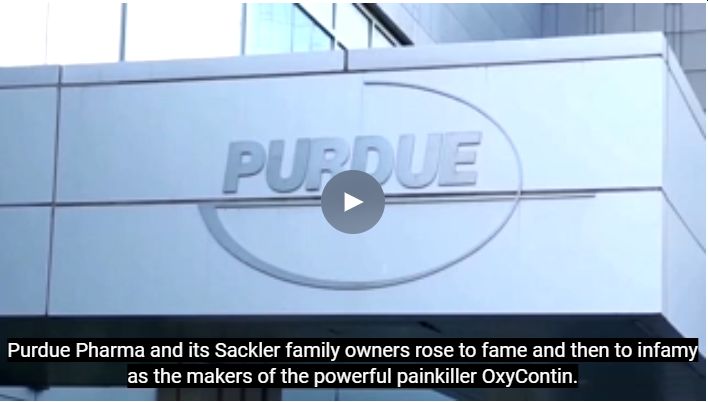- with Senior Company Executives and HR
- with readers working within the Insurance industries
January 17, 2025 - On Jan. 17, 2024, the U.S. Department of Justice (DOJ) Criminal Division's Fraud Section released its annual Year in Review for 2024 (2024 Report). Although larger than many U.S. Attorneys' offices, the Fraud Section prosecutes only white collar crimes. The Section has approximately 140 prosecutors in its three litigating units: the Health Care Fraud Unit (HCF), the Market Integrity and Major Frauds Unit (MIMF), and the Foreign Corrupt Practices Act Unit (FCPA).
The 2024 Report showcases various Fraud Section successes over the past year and compares 2024 statistics to those of prior years.
The Fraud Section reported a very active 2024, with increases over 2023's numbers across most metrics — cases resolved, individuals convicted, and financial penalties imposed. Last year, the Fraud Section reported $28 million in average fraud per individual charged; the 2024 Report shows an increase to $35 million, a 25% jump.
The 2024 Report also underscores the significant number of executives, gatekeepers, and medical professionals criminally charged and convicted, and in doing so, highlights new investigative techniques used to effectuate those cases and new types of fraud resulting in those criminal actions.
For practitioners, these results indicate the Fraud Section will continue to expand its prosecutorial tools, widen its geographic footprint, and redouble enforcement in key priority areas. Even with a new administration taking charge, it is unlikely the Fraud Section will see a significant decline in cases in 2025.
By the numbers: the Fraud Section in 2024
In 2024, the Fraud Section publicly charged 234 individuals and convicted 252. The Section completed 37 trials, which capped one of the strongest three-year stretches in Fraud Section history, with 128 trials across 30 judicial districts.
Notably, in 2024, the Fraud Section resolved 13 corporate cases, eclipsing last year's numbers by 2, an 18% improvement. Similarly, "total global monetary recovery" increased from $689.5 million in 2023 to $2.306 billion in 2024, a 300% gain.
Health Care Fraud Unit
The HCF Unit remains the Fraud Section's largest litigating unit, with twice as many prosecutors (over 70) as either MIMF or FCPA and most of the Section's trial convictions. HCF conducted 19 trials, resulting in 21 defendants being found guilty, and obtained 144 pleas.
The HCF Unit also charged more than 147 individuals with crimes allegedly involving more than $3.26 billion in cumulative false and fraudulent claims. The 2024 Report highlights the HCF Unit's use of proactive data analytics to identify Medicare billing outliers, detect telemedicine fraud, and identify prescription drug abuse.
As part of the 2024 National Health Care Fraud Enforcement Action (NHCFEA), the HCF, working with local U.S. Attorneys' offices, charged 193 defendants with crimes involving $2.75 billion in false and fraudulent claims. Unlike last year's enforcement action, which focused on COVID-related fraud, the 2024 NHCFEA involved cases with diverse allegations, including unlawful distribution of prescription stimulants, fraudulent addiction treatment, distribution of adulterated and misbranded HIV medicine, laboratory fraud, and telemedicine fraud, among others.
In one of the NHCFEA's most notable cases, United States v. Gehrke, et al.(D. Ariz.), the HCF Unit to date has obtained guilty pleas from three defendants in connection with a $900 million scheme involving the application of expensive ($1,000 per square centimeter) amniotic wound grafts to elderly Medicare beneficiaries (some of which were terminally ill and hospice bound). One of the defendants who pleaded guilty allegedly received hundreds of millions in kickbacks in exchange for ordering the products from the wholesale distributor.
These results signal the HCF Unit's continued focus on prosecuting cases involving patient harm, telemedicine fraud, and laboratory fraud, with significant alleged loss amounts.
Market Integrity and Major Frauds Unit
The MIMF Unit focuses on sophisticated financial fraud cases. According to the 2024 Report, the MIMF Unit charged 75 individuals last year, obtaining 71 convictions, including 15 individuals convicted at trial.
The Unit doubled the number (4) of corporate resolutions from 2023, resulting in $629.4 million in "global monetary recoveries." Included in that total was the MIMF Unit's first declination with disgorgement under DOJ's Corporate Enforcement Program (CEP), a remedy historically utilized in FCPA matters.
As with HCF, the 2024 Report highlights the MIMF Unit's new data analytics capabilities, which resulted in an insider trading trial conviction based on the alleged abuse of a 10b5-1 trading plan. The MIMF Unit also obtained guilty pleas in an insider trading case against a former Federal Reserve Bank of Richmond member, United States v. Thompson (E.D. Va.) and another involving false information provided to the Food and Drug Administration. United States v. Pourhassan, et al. (D. Md.)
The 2024 Report underscores the MIMF Unit's focus on procurement fraud. Notably, criminal procurement fraud cases have grown in size and scope, drawing on the MIMF Unit's securities fraud skills to prosecute accounting fraud against government contractors. In addition to its corporate resolutions, the MIMF Unit charged individuals with procurement-related fraud, including a scheme to defraud the Securities and Exchange Commission (SEC) and a tenured medical professor engaged in grant fraud.
In United States v. Kim (N.D. Cal.) MIMF also obtained a guilty plea from an individual who defrauded the Defense Logistics Agency. Criminal procurement fraud investigations are certainly an area to watch for growth in the coming years.
The MIMF Unit also continues to aggressively prosecute cryptocurrency cases. The Unit won two cryptocurrency manipulation trials, including DOJ's first prosecution involving an open-market cryptocurrency manipulation scheme. Whether changes in the SEC's cryptocurrency posture affect the volume of DOJ cases remains to be seen, but prosecuting crypto-related financial fraud cases will remain a MIMF Unit focus.
Foreign Corrupt Practices Act Unit
In 2024, the FCPA Unit charged 23 individuals, obtained 16 convictions, and concluded nine corporate investigations (eight resolutions and one CEP declination). Only once in the last decade did the FCPA Unit enter into more corporate resolutions than in 2024. And the Unit broadened its geographic scope, coordinating its first corporate resolution with Ecuador. These resolutions resulted in $1.68 billion in total global monetary amounts, over $1 billion more than in 2023.
The individuals the FCPA Unit charged and convicted in 2024 were a diverse group of bribe payers, intermediaries, and foreign officials convicted for wire fraud and money laundering offenses related to bribery schemes. Notably, the FCPA Unit tried four cases to a jury against individuals, all leading to convictions.
The 2024 Report emphasizes the FCPA Unit's extensive menu of tools to uncover and combat foreign corruption. For example, the 2024 Report highlighted the benefits of self-reporting, juxtaposing resolutions where one company self-disclosed and was able to take full advantage of the CEP to obtain a declination with disgorgement with another, which, while not getting full credit for self-reporting, did receive a discount (but no declination) under the latest CEP revisions. The 2024 Report also noted continued cooperation with foreign authorities and the referrals already received from the newly formed International Corporate Anti-Bribery Initiative (ICAB).
What to expect in 2025
Every change in administration sparks questions about whether the Fraud Section's aggressive agenda will wane. At the beginning of the last Trump administration, commentators focused on the anticipated decrease in FCPA prosecutions — concerns that proved unfounded. As the 2024 Report indicates, the Fraud Section continues to expand its prosecutorial tools and the geographic and substantive areas of its focus. We do not expect the Section to relax in its pursuit of novel and important cases.
While new leadership will be atop DOJ, and a yet-to-be-named Assistant Attorney General for the Criminal Division will undoubtedly influence the Fraud Section's priorities, those predicting a downturn will likely be proven wrong again. DOJ's focus on rewarding whistleblowers and entities that self-report misconduct, combined with its use of data analytics, has created a new and steady stream of leads to pursue that should keep the Section busy for the foreseeable future.
Originally published by Thomson Reuters January 17, 2025.
The content of this article is intended to provide a general guide to the subject matter. Specialist advice should be sought about your specific circumstances.



